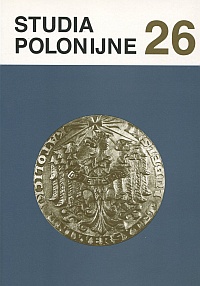Współcześni Europejczycy o Europie, Unii Europejskiej
Main Article Content
Abstrakt
This article presents and discusses the representations of Europe and the European Union held by contemporary Europeans. It is based on the comprehensive and recent data collected within the framework of the international research project EURONAT (all its findings are available at: www.iue.it/RSC/Euronat) curried out in nine European countries – Greece, Italy, Spain, G. Britain, Germany, Austria, Czech Republic, Poland and Hungary − in years 2001-2003. The in-depth interview findings gathered in all enumerated states have been selected for the text's empirical source. In the opening section of the article attention has been paid to the methodological issues of the in-depth interviews. Then follows presentation and analysis of the representations of Europe and the EU. The analysis shows that: our respondents from all researched countries commonly perceive Europe as divided into West and East, the former being often portrayed as the “core” of Europe; the UE, seen as the emanation of Western Europe or just the Europe, has been both praised for its virtues and criticised for its shortcomings, above all “the Brussels bureaucracy”. The enlargement of the UE to the east (that of year 2004) has been portrayed as a globalizing process that leads to the establishing of a “one-state” that will counter-balance the USA. Respondents from both the EU and the accession countries viewed the enlargement through the prism of the economic issues.

